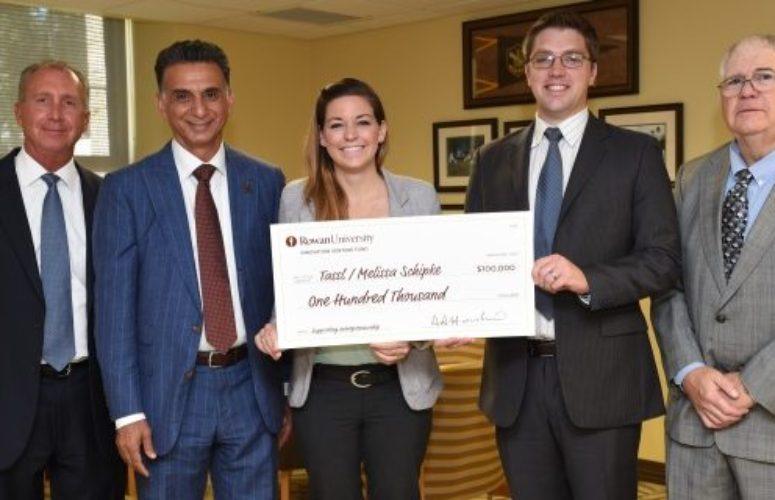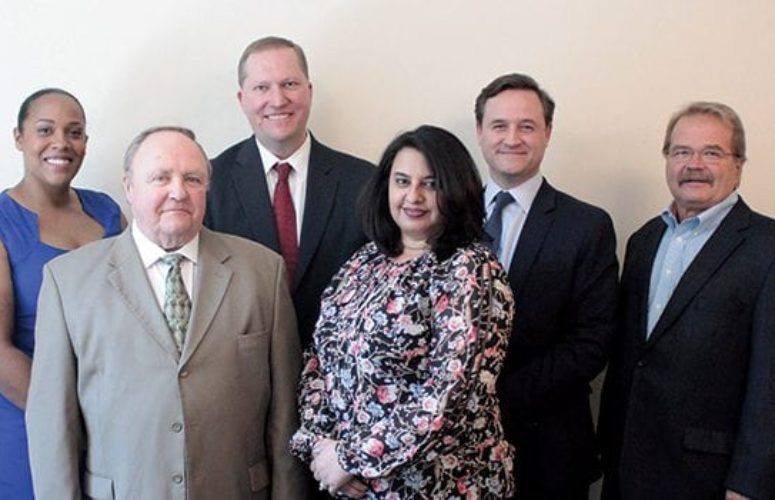
Entrepreneurs Share Their War Stories
Trade-Talk Roundtable – The path of business ownership truly requires a brave heart!
By Anthony Birritteri,, Editor-in-Chief On Jul 24, 2017Risk takers, optimists, passionate, resilient, focused, dreamers, crazy? On the following pages, you will read the stories of six entrepreneurs who would readily admit that all of the words previously mentioned describe them. New Jersey Business magazine, in its next installment of our Trade-Talk Roundtable series, sat down with these business owners to listen to their early-day startup hardships and discover how they stuck to their guns in braving the elements of entrepreneurship to realize its many rewards. They all candidly admit that the battle for business success is never over, as competitors are always at their heels, waiting for someone to stumble and be overtaken.
The playing field in this game is the State of New Jersey, which, of course, has its home court advantages and disadvantages, which our participants openly discuss.
Taking part in this Q&A session are: Jeffrey Barnhart, CEO and president, Creative Marketing Alliance, Princeton Junction; James W. Bell, Sr., president, Abel HR Services, Inc., Cranbury; Joanne Canady-Brown, owner, The Gingered Peach, Lawrenceville; Erik Hassing, co-owner, Angry Erik Brewing LLC, Lafayette; Patrick Ryan, president and CEO, First Bank, Hamilton; and Manisha Subramanian, owner, strategic partner, PrideStaff, Edison.
What follows are their inspiring tales from which future entrepreneurs can learn.
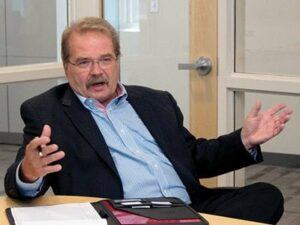
In talking about success, Jeff Barnhart, of CMA, says, “The day I say to myself, ‘I made it,’ is the day that someone will eat my lunch. I wake up every day knowing I have to earn it (the business).”
Q: Tell me about your business and the products or services you provide.
Barnhart: Creative Marketing Alliance (CMA) is celebrating our 30th year in business. We are a strategic marketing and integrated communications firm based in Princeton Junction offering public relations, social media, advertising, website and digital marketing services to our clients.
Bell: Abel HR Services Inc. is a professional employer organization. We hire employees and lease them back to the parent organization. That makes us responsible for payroll, taxes, workers’ comp, HR and benefits, etc. I am leasing some 5,000 employees. The company was established in 1992 and is located in Cranbury. Today, we are doing $260 million a year in business, are in 44 states and have a staff of 50.
Canady-Brown: I am the owner of Let Them Eat Cake LLC, which is doing business as The Gingered Peach, in Lawrence Township. We specialize in baked goods … all things sweet. We employ 21 people. We are also a wholesale supplier to coffee shops. We were founded in 2011 and today have revenues of more than $1 million a year.
Hassing: I’m co-owner and CFO of Angry Eric Brewing. I own it with my wife Heide, who is the COO and head brewer. We are a small microbrewery in Sussex County. We opened our doors in 2014 and today have nine employees.
Subramanian: I am the local owner of PrimeStaff, a national staffing company. I am currently the only one operating in New Jersey. We opened our office in 2015, have a staff of three, but have placed almost 1,000 people at various clients. We do temp-to-hire and direct hire [placement]. We cross [various] industries and do everything from light industrial, administrative and clerical to professionals, such as HR, legal and finance, etc.
Ryan: In 2008, I helped co-found First Bank, a community bank based in Hamilton, Mercer County. Today, we have about $1.1 billion in assets, with 10 locations, mostly throughout New Jersey and one in Pennsylvania. We are also pending approval on acquiring a small bank in Bucks County. We have about 110 employees. (First Bank also recently completed a public offering, raising $37.5 million in gross proceeds.)
Q: What made you take the risk and start your business?
Barnhart: Prior to starting CMA, I worked in the lighting division of Norelco. The parent organization, North American Philips, which was a Dutch-owned company, bought Westinghouse Lighting, and my responsibility was to establish the Philips Lighting brand here in the US. I ran the in-house agency for several years out of Hightstown. The company was building a new facility in Somerset, but I lived in Bordentown. I didn’t want to move to Somerset, and I always wanted to own my own agency … it seemed like the time was right.
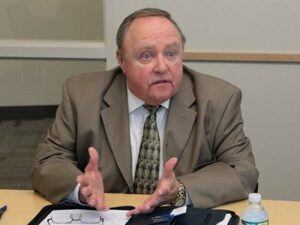
In discussing today’s younger workforce, Jim Bell, of Abel HR Services, comments, “No one wants to start at the bottom. Therefore, no one learns the basics. If and when those people become bosses, they don’t know what they are bossing, which creates even more confusion.”
Bell: I was a company controller. I had wanted my own business, but I didn’t want to be a CPA. The company I had worked for was put on the block. One of the potential buyers asked me to take over as general manager when the deal was completed. The deal fell through, but I was introduced to something called “employee leasing” because that was what we were going to use after the acquisition. We were going to use Action Staffing. It left me with every single form, contract and procedure that you could possibly imagine.
I took everything home to review with my wife, who had been an HR manager. Upon reading the materials, we looked at each other and said, “We are mortgaging the farm.” This was going to be our business.
Canady-Brown: I had a degree in economics with a minor in statistics from Rutgers University. While I was going to college, I worked in food service. I waitressed at Johnny Rockets, where I then became a shift supervisor and general manager. However, I capped out. There was nowhere else to go.
I made the transition to the corporate world, working at Bed Bath and Beyond’s corporate headquarters as project manager. I was the direct liaison between all the departments involved in launching all new locations. I opened about 80 stores, including the first store in Alaska. However, I knew this was not what I wanted to do. I was really passionate about baking because I grew up in a household where food was life. I also started working on my MBA at Rutgers.
A place in Ewing, called Arctic Ice Cream, had a restaurant area. I noticed that a whole 500-square-foot section wasn’t being used. I worked up the nerve to ask if I could make a little bakery in the corner of the store. They took a chance on me. With $10,000 – because that is all I had – I got it up and running.
Hassing: I was, and still am, a full-time attorney, operating my own firm with a partner. Since that was successful, it made it easier to think about opening a brewery. My wife Heidi and I had been home brewing for about 12 years, so I started telling her that we can really do this.
It went from an idea to, three months later, having a lease and submitting the paperwork to the federal government and state to get our approvals. It took off from there.
Subramanian: I graduated from Drexel University with an information technology degree. I was with PriceWaterhouseCoopers, involved in networking projects and traveling full-time. After I got married, my husband said, “Do you want to come off the road?” I thought, “Alright.” I then went into resource management. I was recruited by Reuters America, which is now Thompson Reuters, to head up the consulting division responsible for staffing. However, I realized, after many years, that I could not do the commute into New York City, anymore. I wanted to see my family and the trains were always delayed.
I took some time off after the birth of my second son. Later, I went to work at a staffing agency and found out I enjoyed it. I like the idea of helping someone get a job and put food on the table.
After being with the company for almost 10 years, I wanted to do something on my own, so I quit. I found a franchise broker who gave me eight to nine different staffing companies to review. I narrowed it down to PrideStaff. It was an honest and ethical company.
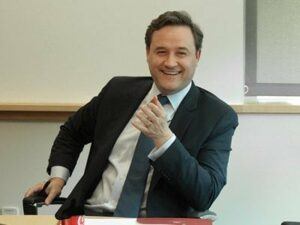
After trying to find a career niche, Patrick Ryan, of First Bank, says his father asked him to join him at Yardville National Bank. Of his experience, Ryan says, “I soon realized that community banking was very entrepreneurial. I figured it was an industry where I could go and do different things and have an impact.”
Ryan: For me, it was a little more trial and error. When I was younger, I thought that entrepreneurs knew that, from the day they were born, they had a passion for some idea and thought that they were going to revolutionize the world. I slowly realized that a lot of people are not entrepreneurs by default. I never had an idea of what I wanted to do, so I tried many things and figured out what I didn’t want to do.
Originally, I thought I was interested in government and politics. After spending a semester in college in Washington, DC, I was fully cured from that. I tried to shift gears into business, so I went into certain jobs where I knew I would learn certain skills. I started off in investment banking to learn finance. I went back to graduate school thinking I would be exposed to a lot of different people and work. I ended up going into consulting to build my skill sets.
Sometimes, the most obvious answer takes you a long time to figure out.
My dad had been saying, “Why don’t you come work with me at the bank (Yardville National)?” I soon realized that community banking was very entrepreneurial. I figured it was an industry where I could go and do different things and have an impact. So, I joined my dad at Yardville. The bank was already public. I knew that if it got sold, there might be the opportunity to start something new.
That is what happened. Yardville was sold in 2007. We then put a group together of former Yardville folks, raised money and ended up doing a recapitalization and basically got First Bank started in 2008. (The original First Bank was founded in 2007.) Nine years later, I feel like this is what I want to be doing. Banking ultimately became my outlet to find what fit me.
Q: What was the business climate like when each of you started your business?
Barnhart: In 1987, we were in the middle of a recession. I didn’t know it at the time. I think one of the benefits of being an entrepreneur is just focusing on what you need to do to succeed. Sometimes, there is no other recourse. There is no “plan B.” So, you have to move forward with “plan A.” For me, if it wasn’t successful, I was going to go live in a tent. Sometimes that’s the focus you need in starting and growing a business.
Bell: I started the business in 1992, which was the end of the same recession Jeff experienced. I marketed myself as someone who could save businesses a lot of money. It worked.
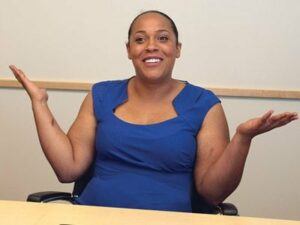
When her landlord was going to raise her rent 60 percent after her first year in business, Joanne Canady-Brown, of The Gingered Peach, recalled thinking, “’You are not going to put my back against the wall and make me feel like this is my only choice.’ So that scary moment was leaving with no place to go. While it was terrifying, it was freeing to start all over again. That’s when I rebranded as The Gingered Peach.”
Canady-Brown: I picked the worst year in the world to quit my job. However, my thought was, “People are always going to eat. We need food to survive.” Everyone at this table has a birthday and everyone gets a birthday cake, that is not going to change.
So, while the economic environment was not ideal, I was very self aware of who I was as an entrepreneur. I just said people deserve better food.
Hassing: I graduated college in 1994 and went out to try to find a job in the worst economy in the nation. I then went to law school and a recession almost hit immediately. It seems that I’ve been in some sort of a recession my whole working life.
Subramanian: We started in 2015. So the market was good, but in staffing there is lot of competition. Not many staffing companies are locally owned and operated as we are. I knew I had advantages. We looked at it from a different angle. I was not looking to staff in Pennsylvania or Delaware. I started getting a lot of business by supporting the local clients. With the political climate, we also knew that the H1 market was changing. We knew that undocumented workers were also a big issue. So, I made sure companies know that we e-verify. By word of mouth, clients started coming to us.
Ryan: There were positive trends in 2008. It was a time when a lot of banks were in damage control mode, so they weren’t looking to grow, expand or lend. We were new and we knew we needed to grow and expand. There were some benefits, like being able to establish a reputation as a bank looking to do business at a time when a lot of others weren’t.
The one challenge of getting started then was the regulatory environment. … Everybody was looking for victims or someone to blame for the financial crisis. Regulators had to show they were being tough.
Q: What was the scariest moment of your entrepreneurial career and at what point did you realize you were going to make it?
Barnhart: The scariest moment for me was when I left the corporate job that had a good paycheck and benefits. I walked out the door and said “bye, bye” to that. I opened up another door the next week with no guaranteed paycheck or benefits.
Additionally, the day I say to myself, “I made it,” is the day that someone will eat my lunch. I wake up every day knowing I have to earn it (the business).
Bell: The scariest moment is when you don’t get that paycheck. I don’t think that COBRA existed when I started, so we were totally in a free fall without a parachute. The day I realized I was going to make it … the first plateau … was when we broke even 18 months after we started.
Canady-Brown: I had two scary moments. First, when I went on the journey of being an entrepreneur, I thought no one would take me seriously because I was a self-taught baker. So, I asked a friend who went to the French Culinary Institute to partner with me. I thought her degree was going to give me some sort of clout. After being open for six months, her fiancé was transferred to Rhode Island. My partner said she wasn’t going. About three weeks later, she went to get lunch and never came back. It was just me … alone. It was terrifying, but you regroup and refocus.
The second time was when my landlord came to me after a year of operations. I was eight months pregnant. He said, “I see business is doing well. I am going to bring your rent up.” Pretty standard, right? He raised it 60 percent. I was already losing money because I was in startup mode. So, I couldn’t afford that.
I thought, “You are not going put my back against the wall and make me feel like this is my only choice.” So that scary moment was leaving with no place to go. While it was terrifying, it was freeing to start all over again. That’s when I rebranded as The Gingered Peach.
The day I felt I was going to make it? I worked on my MBA in marketing, so I did this huge marketing push of: “Guess what’s coming?” to open the new location. We papered the windows. You couldn’t see in. We built this excitement. On opening day, we ripped the paper and, oh my God, there were 50 people outside. We sold out in an hour and I was like, “We are going to make it if we keep on doing good work.” On Mother’s Day this year, the line at the store wrapped around the building into the parking lot.
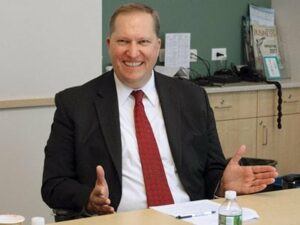
According to Erik Hassing, of Angry Erik Brewing, “Sussex County was … known as Budweiser and Coors territory. During our opening, we had people on our tours say, ‘Well, good luck. A microbrewery in Sussex County?’ It turns out, in part, that we created the market there. People didn’t like the light, watery beers being served at the local restaurants.”
Hassing: The scariest moment for us? We finally got our approvals to brew after being held up forever by the board of health. We go in on a Sunday at 8 p.m. The standard home brewed batch, from start to finish, takes about 6 hours, if you clean everything thoroughly at the end. We left the brewery at 5 a.m. Monday with the sun coming up. My wife and I were both exhausted. We both had to be at our regular jobs by 9:00 a.m. I remember looking at my wife and thinking, “What have I done to this woman I love?” So, that was frightening.
Sussex County was also known as Budweiser and Coors territory. During our opening, we had people on our tours say, “Well, good luck. A microbrewery in Sussex County?” It turns out, in part, that we created the market there. People didn’t like the light, watery beers being served at the local restaurants, but it was the only choice they had.
Competition has increased in the three years since we have opened. The market seems to be shifting hyper local to the point of hurting some of the bigger established microbreweries. There is a big push back from AB InBev as well. They are buying more established microbreweries.
The day we figured out we made it? I don’t know if that day has fully come or will ever come. After a month, we realized there was a market for this beer that was just untapped. We were not a novelty.
Ryan: The scary moment? We discovered that the original First Bank we acquired had more issues than we had anticipated (bad loans), so we were trying to clean that up a bit. We weren’t making money, and we were losing more than we thought because the Fed kept lowering interest rates, which basically was driving down our margins.
There was a fear that people would see what we have done to their rates, walk out the door and take their money with them. Thankfully, the run-off was manageable and we worked through it. It was like “It’s a Wonderful Life,” but thankfully, I didn’t go near any bridge that day.
Q: Did any of you get assistance from state programs VIA the EDA, SBA or any other government agency?
Canady-Brown: No one would touch me. I remember meeting with an SBA advisor. I had been open two years and told him about my expansion plan. To say his advice was not optimistic would be an understatement. It caused me to recoil from every piece of assistance. I thought, “If you don’t want to help me, I am going to do it myself.”
Ryan: One of the things that I think is hard, and that we deal with a lot as community lenders, is that many people think that if they need money, they have to go to the bank. The reality is there are different types of capital for different types of enterprises in different stages in the business. However, there is no school for entrepreneurs that explains that.
Q: What are some of the positive and negative things about operating your business in New Jersey?
Bell: On the positive side, New Jersey has a dense population and that is worth its weight in gold to anyone who is willing to go out and [reach that market]. Unless you have been in other states and other countries, you don’t appreciate how densely populated we are and how many opportunities are here because of that population. We don’t have hayseeds here. People … all have good educations and they all want to be entrepreneurs or professionals. From my standpoint, that is right up my alley because they need support and I’m here to give it to them.
On the negative side, when are our politicians going to stop spending money in excess of what they are collecting? They pull it right out of the marketplace and there is none left for anybody else. It’s Keynesian economics, but yet it seems to be a strange topic in Trenton.
Hassing: There is a lot of wealth in New Jersey. We are not selling the cheapest beer out there by any means, but there are people ready to spend money to enjoy what they are drinking.
However, the regulations in the state, and the way they are administered, are not business friendly. They stymie growth. A lot of politicians do not want to plan for growth. If we want to grow, we need to have available utilities. However, the [legislators] kick the can down the road.

According to Manisha Subramanian, of PrideStaff, “New Jersey is a very expensive state in which to do business. Workers’ comp rates are the second highest in the nation. We are probably in the top five nationally in terms of payroll costs. So, I don’t feel we are a very employer-friendly state.”
Subramanian: New Jersey is a very expensive state in which to do business. Workers’ comp rates are the second highest in the nation. We are probably in the top five nationally in terms of payroll costs. So, I don’t feel we are a very employer-friendly state. I don’t feel the state supports small businesses.
Also, the whole nation is teaching people that you need to get a college degree … you don’t need that. For some people, college isn’t for them. We need the worker bees. It is getting very hard to find people because they don’t want to work for the $10, $11, $12 hourly wage.
Bell: No one wants to start at the bottom. Therefore, no one learns the basics. If and when those people become bosses, they don’t know what they are bossing, which creates even more confusion.
Ryan: That’s a great point. People don’t want to work their way up. They want start at the top and go from there.
At the end of the day, if you don’t learn the fundamental skills you need to be successful in your job wherever you go, you will ultimately fail and have to go back and learn those skills.
Barnhart: The generation coming into today is used to getting participation trophies. “I show up, therefore I get a trophy.” The dynamics are different with the younger millennial generation where you have to sometimes change your beliefs and philosophy on how to deal with workers.
As a boomer, I grew up in an environment where you worked at your job. Today, with lot of millennials, the first thing is about work-life balance. Some of the first questions I have from people we interview are: “What are your benefits? Your hours? Can I have flex time? Can I work from home, etc.?” So, you have to be flexible and offer these types of programs that entice that generation to participate.
The workforce is also less loyal. For many in [the younger] generation, a job is a project. They would jump at a [salary] increase because they know they are not going to be at the current job for long. So, it makes it difficult to groom younger people into positions. But we certainly do that the best we can.
Q: In hindsight, is there anything you would have done differently in your entrepreneurial career?
Barnhart: One thing I have learned over the course of time is hire slower and fire quicker. The other thing is to hire to your core values; you can always teach the skill sets. I used to hire more based on the skills sets and ignore the core values. So, we didn’t necessarily have people who played nice in the sandbox. That is something we have changed.
Bell: The classic methods that we all grew up with for hiring people are all gone. You can’t find the skill sets. You can’t find the education. So you hire for an attitude, you hire for an ambition. Then teach, teach, teach.
Q: Is there any advice those of you who have been in business longer than others at this table want to give to the younger entrepreneurs?
Barnhart: Never lose your passion. If you maintain a passion for what you do each day, you are not working, you are doing something you enjoy. Part of that is surrounding yourself with good people and letting them do their thing. I am blessed with 30 good people who I look forward to seeing everday.
Bell: Don’t quit. Don’t stop. Don’t get discouraged.
Related Articles:




